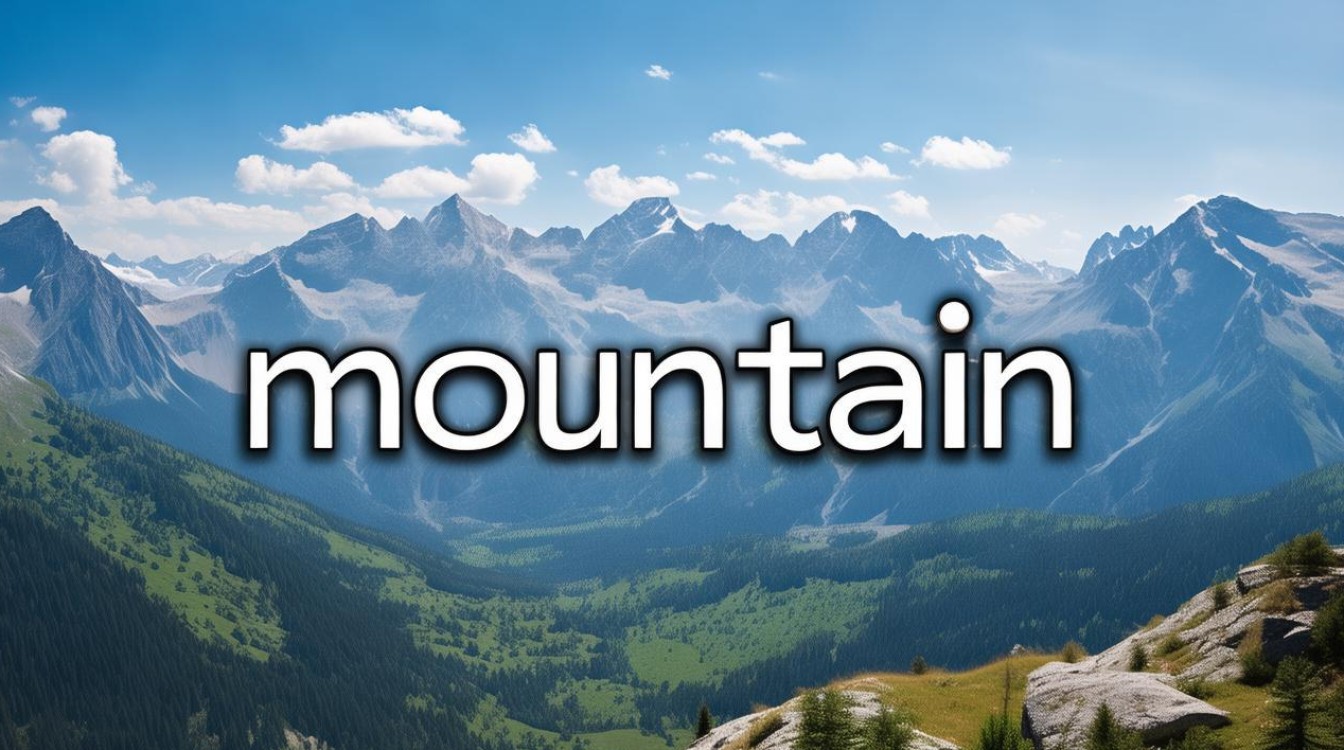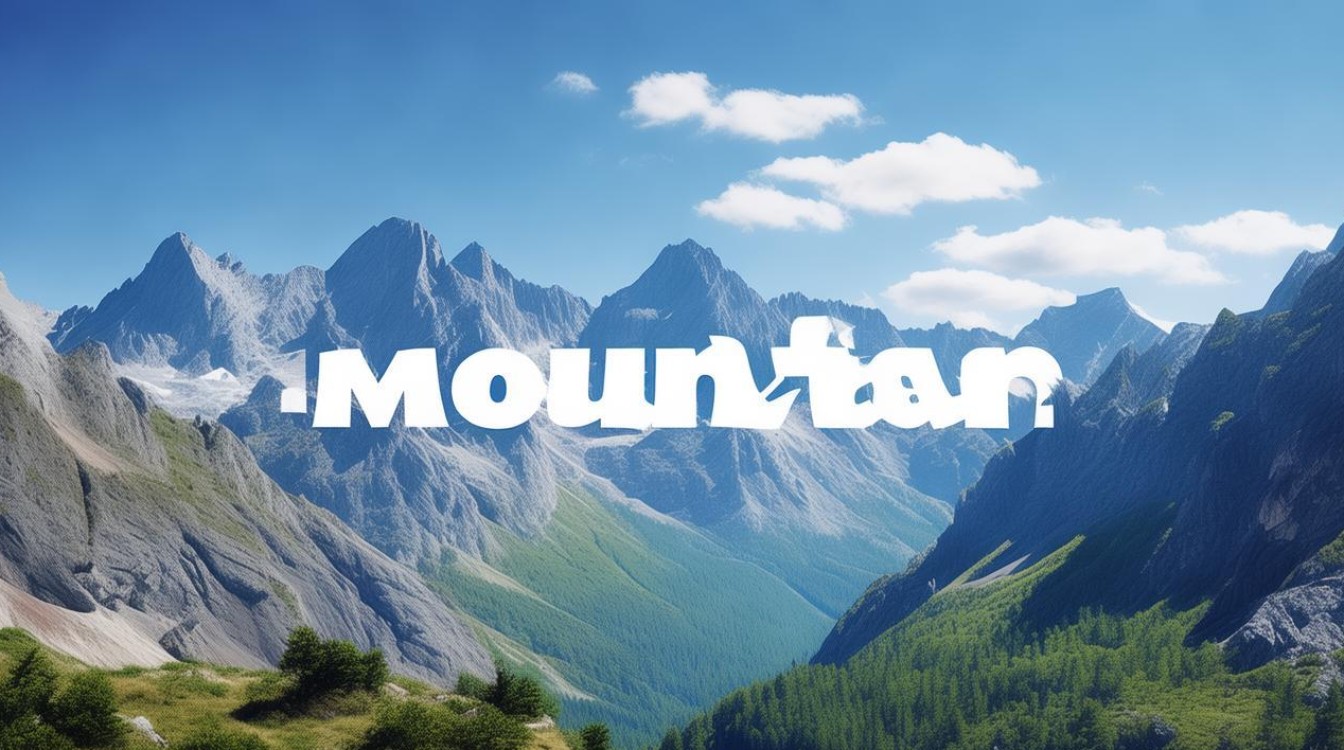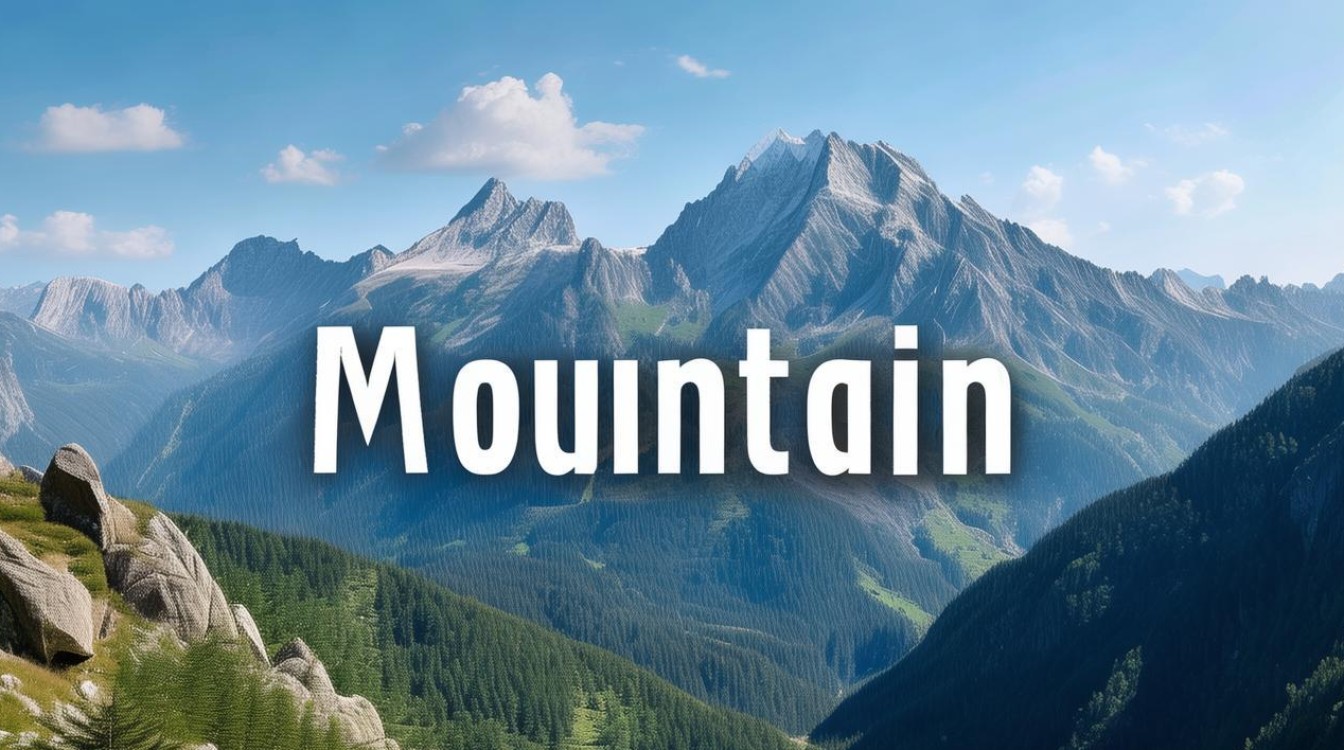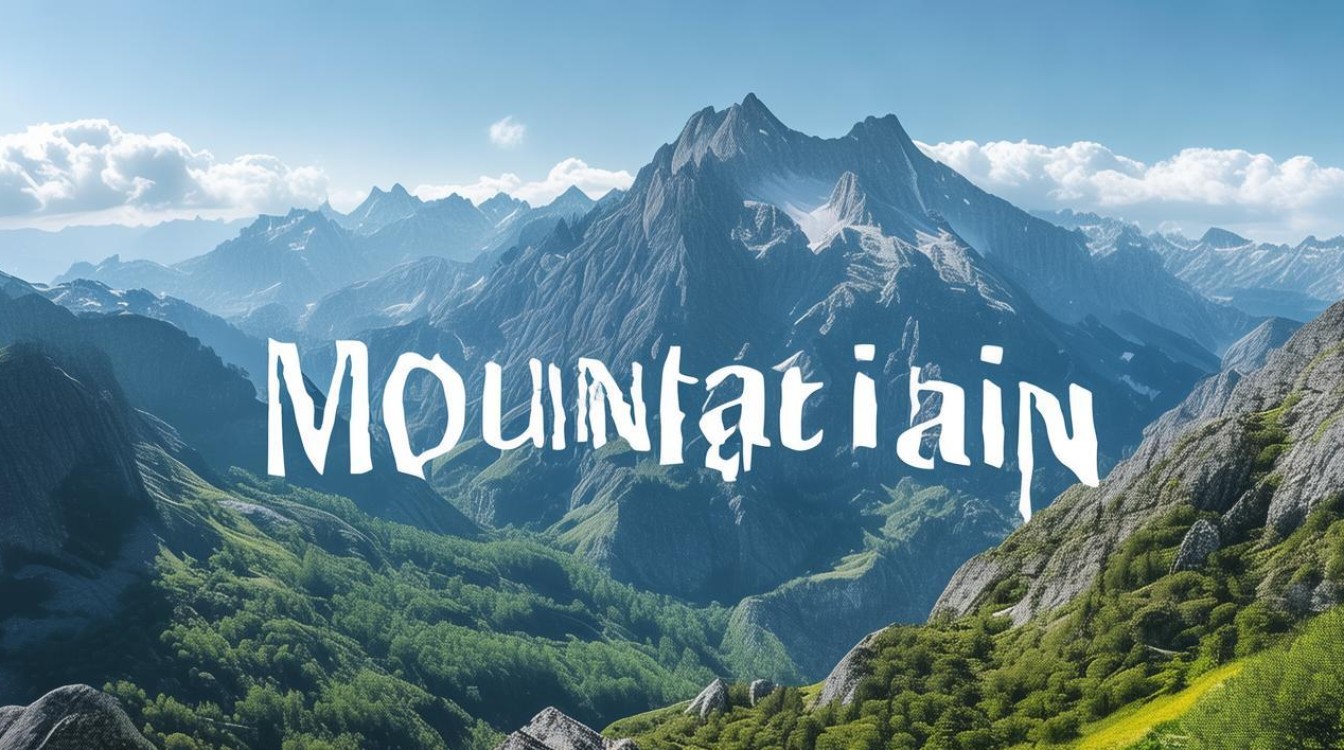山是大自然最壮丽的景观之一,从巍峨的喜马拉雅山脉到秀丽的阿尔卑斯山峰,不同语言对“山”的表达也各有特色,在英语中,描述山的词汇丰富多样,涵盖不同形态、高度和地质特征,本文将详细介绍“山”在英语中的表达方式,并拓展相关词汇和例句,帮助读者准确掌握这些术语的用法。

基础词汇:Mountain
“Mountain”是最常用的英语单词,泛指高耸的自然地形,通常比“hill”(小山)更高、更陡峭。
- Mount Everest is the highest mountain in the world.(珠穆朗玛峰是世界上最高的山。)
- The Rocky Mountains stretch across North America.(落基山脉横跨北美洲。)
“Mountain”可以单独使用,也可与其他词组合,如“mountain range”(山脉)、“mountain peak”(山峰)或“mountain climbing”(登山)。
不同形态的山
-
Hill(小山/丘陵)
指低矮的山丘,坡度较缓,高度通常低于600米。The children rolled down the grassy hill.(孩子们从长满草的小山坡上滚下来。)
-
Volcano(火山)
具有喷发岩浆能力的地质结构,如:Mount Fuji is an active volcano in Japan.(富士山是日本的活火山。)
-
Cliff(悬崖)
陡峭的岩石断面,常见于海岸或山区:
The eagle nested on the edge of the cliff.(老鹰在悬崖边缘筑巢。)
-
Plateau(高原)
海拔较高且顶部平坦的地形:The Tibetan Plateau is called the "Roof of the World."(青藏高原有“世界屋脊”之称。)
与山相关的术语
-
Summit(顶峰)
指山的最高点:They reached the summit at dawn.(他们在黎明时分登顶。)
-
Slope(山坡)
山的倾斜面:Skiers sped down the snowy slope.(滑雪者从积雪的山坡上飞驰而下。)

-
Valley(山谷)
两山之间的低洼地带:The village was hidden in a lush valley.(村庄隐藏在一片葱郁的山谷中。)
-
Ridge(山脊)
山脉的狭长隆起部分:The hikers followed the ridge to avoid thick forests.(徒步者沿着山脊行走以避开茂密的森林。)
文化中的山
英语中有许多与山相关的习语和表达:
- "Make a mountain out of a molehill"(小题大做)
- "The mountain won’t come to you, so you must go to the mountain"(山不转路转)
许多地名包含“mount”或“mountain”,如:
- Mount Kilimanjaro(乞力马扎罗山)
- Table Mountain(桌山,南非著名平顶山)
常见错误与纠正
-
误用“mountain”和“hill”
有人将高耸的山称为“hill”,但更准确的表达应为“mountain”。
- 错误:We hiked up a small mountain.(若高度不足,应改用hill)
- 正确:We hiked up a small hill.
-
混淆“peak”与“summit”
“Peak”可指山峰或整个山,而“summit”仅指顶点:- 正确:The team camped near the peak.(团队在山峰附近扎营。)
- 更精确:The team reached the summit at noon.(团队在中午登顶。)
实用例句
- 旅行场景:
The guide pointed to the distant mountain covered in snow.(导游指向远处被雪覆盖的山。)
- 地理学习:
Fold mountains are formed by tectonic plate movements.(褶皱山是由板块运动形成的。)
- 日常对话:
Do you prefer beaches or mountains for vacation?(你度假更喜欢海滩还是山区?)
掌握这些词汇不仅能提升英语表达能力,还能更精准地描述自然景观,无论是旅行、阅读还是学术写作,准确使用“山”的相关术语都至关重要,下次见到壮丽的山景时,不妨试试用英语表达感受。

